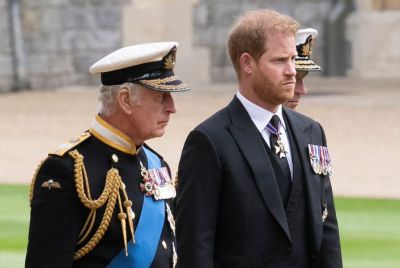UK Expands Gaza Student Visa Program to Allow Partners and Children Under 18 to Join Scholars
New policy allows partners and children under 18 to accompany Gaza students on UK scholarships

The UK government has announced a significant adjustment to its visa rules, allowing eligible Palestinian students from Gaza to bring their partners and children under the age of 18 when they travel to study in Britain. This change affects students who hold fully-funded scholarships (such as Chevening Scholarship awards) or are embarking on long-term postgraduate research.
Previously, most international students from Gaza – although granted university places or scholarships — were required to travel alone under standard student-visa rules, with no family dependents permitted. This new policy brings the rules more in line with existing provisions for research-degree students and acknowledges the exceptional circumstances faced by scholars from a conflict-affected territory. According to the government's official guidance, the change allows those eligible dependents (partners/spouses, and children under 18) of qualifying students to apply for a 'student dependent' visa provided funding requirements and other criteria are met.
Supporters say the move addresses a moral imperative: allowing scholars to pursue education without being forced to leave spouses or children behind in Gaza's devastated conditions. However, critics note that the measure currently affects a very limited number of students — at present only four are reported to have been able to bring dependents, while many others remain caught in limbo.
The issue shines a light on the intersection of higher education, humanitarian policy and immigration rules. For many students from Gaza, secured university places or scholarships represent vital opportunities to build futures after years of war and disruption. But being separated from family has posed a profound barrier — emotionally, logistically and practically. The new visa rule signals recognition from the UK that studying abroad while leaving loved ones behind should not be a forced choice.
That said, significant obstacles remain. The policy is contingent on quite strict conditions: the student must hold a fully funded scholarship or be on a research-degree course, and financial requirements still apply for dependents. Exit from Gaza remains extremely challenging due to travel, security and biometric-registration hurdles.
This development comes amid sustained campaign efforts, including a cross-party group of more than 100 MPs who wrote to ministers warning that students were being forced to make impossible choices between education and family safety. For British higher-education institutions labelled 'universities of sanctuary', the change provides some relief, but the backlog and resource-intensive evacuation logistics mean many remain stranded.
In future terms, how this policy is deployed may set precedent for how the UK handles student visas in conflict-affected regions more broadly — balancing academic merit, global opportunity, family unity and immigration control. For the scholars from Gaza, the hope is that the UK's rule change will be the start, not just a token concession.
© Copyright IBTimes 2025. All rights reserved.




















